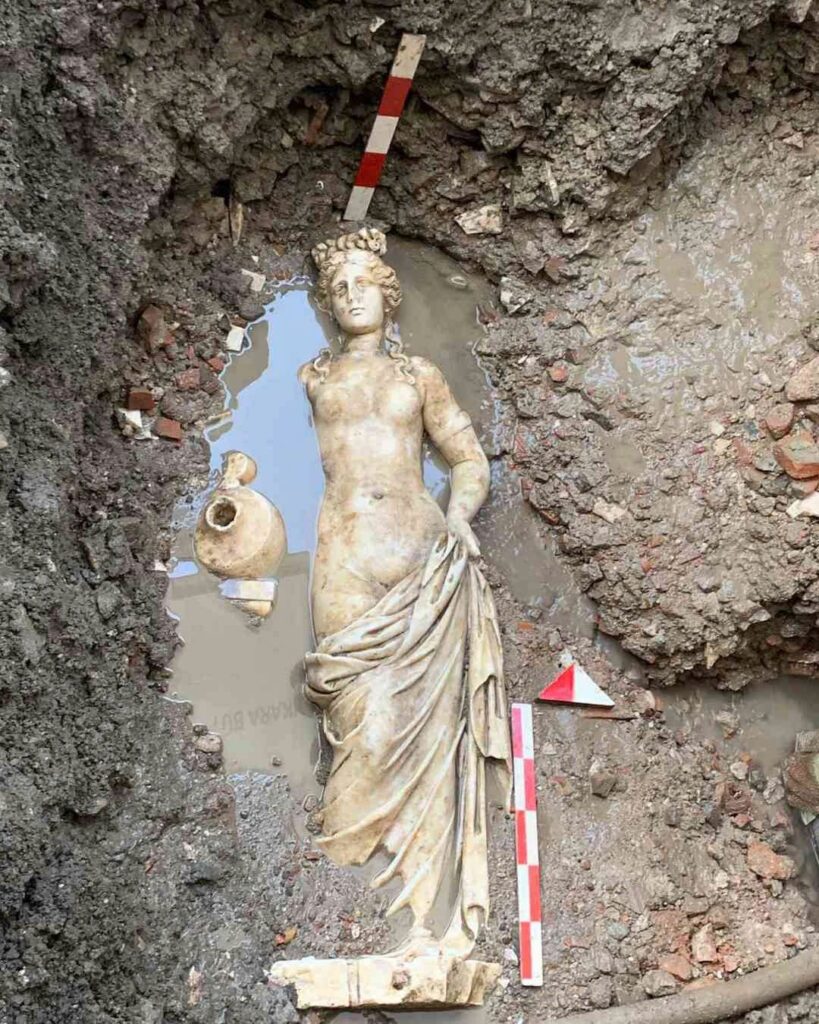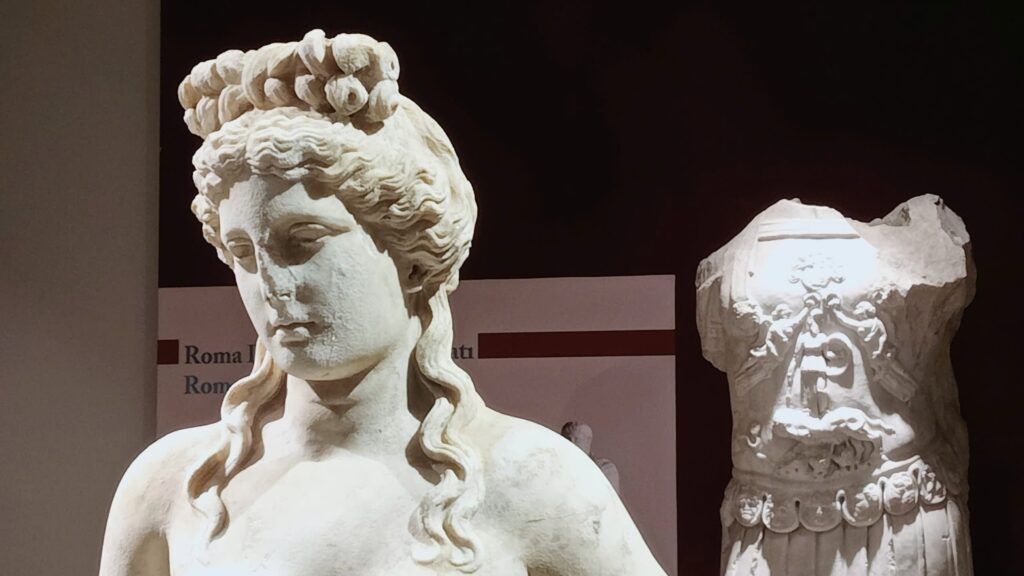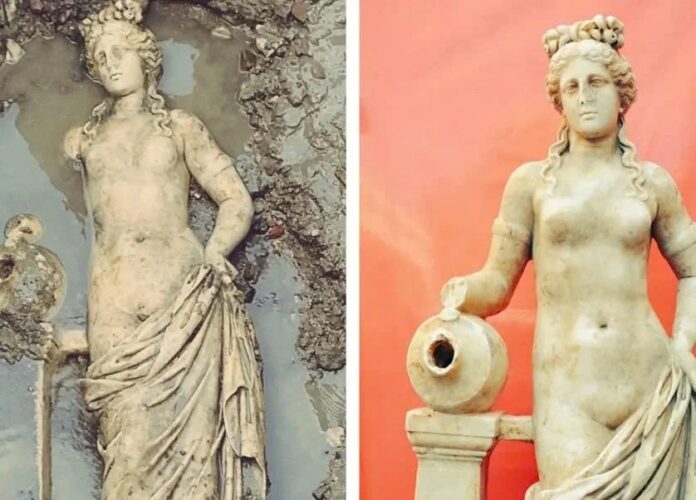Ancient Statue Reveals Its True Identity
From Water Nymph to Goddess of Love

In a remarkable twist of archaeological fortune, a statue initially believed to be a beautiful water nymph has been identified as none other than Aphrodite, the Greek goddess of love and beauty. This stunning revelation came after extensive examination by experts from Bartın University and the Turkish Ministry of Culture and Tourism.
A Deep Dive into History

The 1.53-meter-tall statue was unearthed at a depth of 3.70 meters during excavations in the ancient city of Amasra, located on Turkey’s Black Sea coast. The site, which dates back to the 12th century B.C., was once home to the Phoenician colony of Sesamus and later flourished under the rule of the Iranian Princess Amastris.
Unraveling the Mystery
Clues from the Past
Güray Can Aytekin, Deputy Director of the Amasra Museum, shed light on the statue’s origins: “We initially introduced it as a water fairy due to its location in what we believed to be a pool area. However, further examinations revealed its true nature as Aphrodite.”
A Testament to Ancient Artistry

The statue’s S-curve posture, characteristic of classical 4th century B.C. works, particularly those from the school of Praxiteles, played a crucial role in its identification. Experts estimate the statue dates from the Roman period, specifically between 180 and 200 A.D.
A New Chapter for Amasra
Boosting the Region’s Cultural Significance

This discovery marks a significant milestone for both the Amasra Museum and the region. Aytekin emphasized, “This work is very important for the city and museum in terms of its layer, location, and appearance as a whole. It will contribute to the literature and highlight Amasra’s importance as a Roman port city.”
Looking to the Future
With Amasra’s castle already on the UNESCO Tentative List, this newfound treasure is set to further enhance the region’s historical and cultural prominence on the world stage.
The Aphrodite statue now stands proudly on display at the Amasra Museum, inviting visitors to marvel at its beauty and contemplate the rich history it represents.

